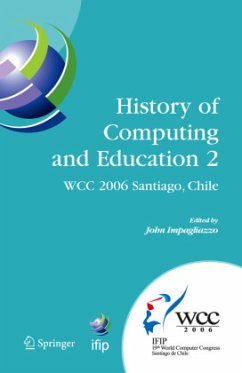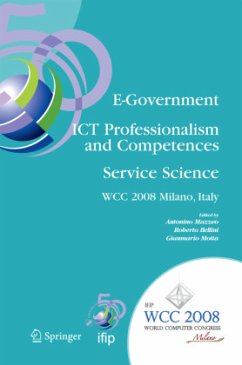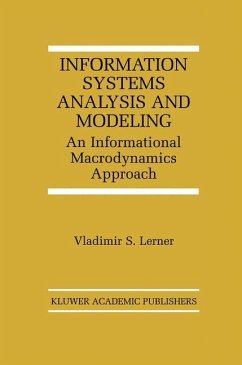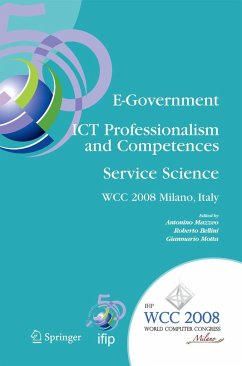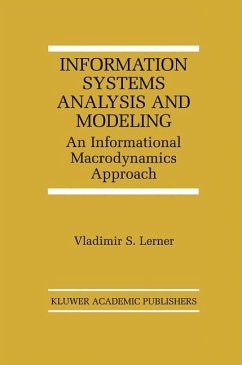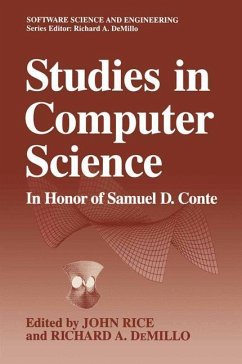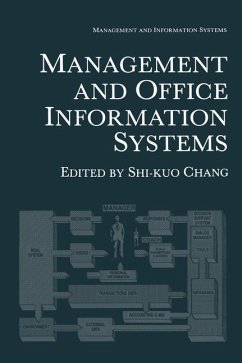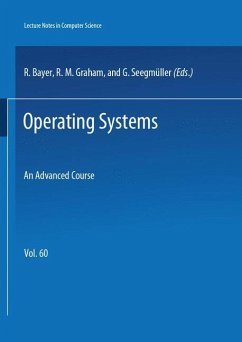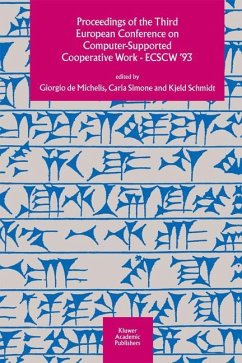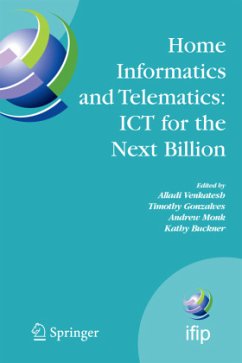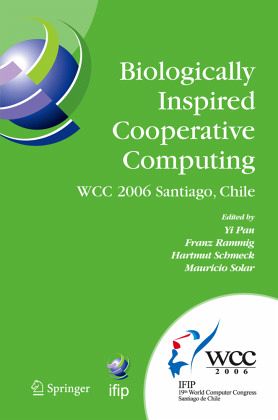
Biologically Inspired Cooperative Computing
IFIP 19th World Computer Congress, TC 10: 1st IFIP International Conference on Biologically Inspired Cooperative Computing, August 21-24, 2006, Santiago, Chile
Herausgegeben: Pan, Yi; Rammig, Franz J.; Schmeck, Hartmut; Solar, Mauricio

PAYBACK Punkte
38 °P sammeln!
This volume presents proceedings from the 19th IFIP World Computer Congress in Santiago, Chile. The proceedings of the World Computer Congress are a product of the gathering of 2,000 delegates from more than 70 countries to discuss a myriad of topics in the ICT domain. Of particular note, this marks the first time that a World Computer Congress has been held in a Latin American country.
Topics in this series include:
- The 4th International Conference on Theoretical Computer Science
- Education for the 21st Century- Impact of ICT and Digital Resources
- Mobile and Wireless Communication Networks
- Ad-Hoc Networking
- Network Control and Engineering for QoS, Security, and Mobility
- The Past and Future of Information Systems: 1976-2006 and Beyond
- History of Computing and Education
- Biologically Inspired Cooperative Computing
- Artificial Intelligence in Theory and Practice
- Applications in Artificial Intelligence
- Advanced Software Engineering: Expanding the Frontiers of Software
Topics in this series include:
- The 4th International Conference on Theoretical Computer Science
- Education for the 21st Century- Impact of ICT and Digital Resources
- Mobile and Wireless Communication Networks
- Ad-Hoc Networking
- Network Control and Engineering for QoS, Security, and Mobility
- The Past and Future of Information Systems: 1976-2006 and Beyond
- History of Computing and Education
- Biologically Inspired Cooperative Computing
- Artificial Intelligence in Theory and Practice
- Applications in Artificial Intelligence
- Advanced Software Engineering: Expanding the Frontiers of Software
In the world of information technology, it is no longer the computer in the classical sense where the majority of IT applications is executed; computing is everywhere. More than 20 billion processors have already been fabricated and the majority of them can be assumed to still be operational. At the same time, virtually every PC worldwide is connected via the Internet. This combination of traditional and embedded computing creates an artifact of a complexity, heterogeneity, and volatility unmanageable by classical means. Each of our technical artifacts with a built-in processor can be seen as a ''Thing that Thinks", a term introduced by MIT's Thinglab. It can be expected that in the near future these billions of Things that Think will become an ''Internet of Things", a term originating from ETH Zurich. This means that we will be constantly surrounded by a virtual "organism" of Things that Think. This organism needs novel, adequate design, evolution, and management means which is also one of the core challenges addressed by the recent German priority research program on Organic Computing.





